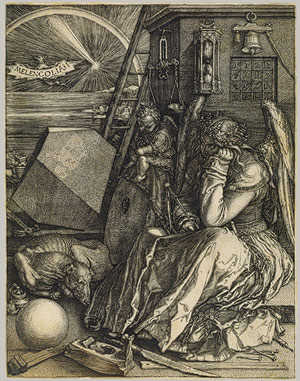Haunting Hamlet: Hamlets Within Hamlet
ENG 4133 Section 5595
Fall 2010
Only a professional can deliver the (greatest) hit(s) of reading (speaking strictly metaphorically: "STAY IN SCHOOL!!!!!").
My Power Animal
Jacques Derrida in Ghost Dance
Avital Ronell on the examined life
Caravaggio's paintings of Abraham about to sacrifice Issac.html
Sigmund Freud, "The Uncanny"
Friedrich Schlegel, "On Incomprehensibility"
Alois Riegel, one of Benjamin's acknowledged influences, on Rembrandt and Dutch Group Portait and Postscript
Richard Burt, "SShockspeare: (Nazi) Shakespeare Goes Heil-lywood," in A Companion to Shakespeare in Performance, ed. Barbara Hodgdon and W.B. Worthen, (Oxford: Blackwell Press, 2005), 437-56.
Inglourious Basterds American and German websites
Walter Benjamin, "The Concept of History" (see the puppet and chess passage, section 1 on p. 1, the state of emergency passage in section VIII, p. 3, calanders and clocks, Section XV, p. 5, about the clock towers being shot out in the July revolution) and the discussion of messianic time, section XVIII, B., p. 6).
"The so-called immortal works just flash briefly through every present time. Hamlet is one of the very fastest, the hardest to grasp."
Walter Benjamin, Notes (III), in Selected Writings, Vol 2, par 1, 285.
Shelf-Help Learning
"A sense of embarrassment often goes unnoticed as the source of a successful enterprise. When I began, ten years ago, to create a more satisfactory order among my books, I soon came across volumes that I could not bring myself to get rid of but that I could no longer bear to leave where they were. Herman von Gilm's poems are among the curiosities of German literature, but I know that at the time I was experiencing Holderlin as a revelation, I had no wish to include them in the section on Germanic poetry. Emil Szittya's first publication, Ecce Home Trick, is something I would not want to be without, any more than many another revealing piece of juvenilia by better-known writers. Yet I drove it from shelf to shelf from one section to another, until it finally found a refuge not far from Gilm's poetry. And Bluher's Jesus of Nazareth was a work I did not wish to include in my books on the philosophy of religion. Nevertheless, its contribution to the pathology of anti-Semitic resentment seemed too valuable for me to dispose of it. In this way, a motley collection came together over the years, a 'Library of Pathology,' long before I thought to actively build a collection of writings by the mentally ill--indeed, long before I even knew that books by the mentally ill existed. Then, in 1918, in a small antiquarian bookshop in Berne, I came across Schreber's famous Memoirs of My Nervous Illness, published by Oswald Mutze in Leipzig. Had I already heard of this book? Or did I read about it a few weeks later in the essay on it by Freud in Volume 3 of Shorter Writings on the Theory of Neuroses, published in Leipzig in 1913? No matter. I was at once spellbound by it."
--Walter Benjamin, "Books by the Metally Ill" Selected Writings 2 (1),124-25
Teaching on the ruins
Kafka
Interpretation as Circle / Repetition
The Unknown Comic

